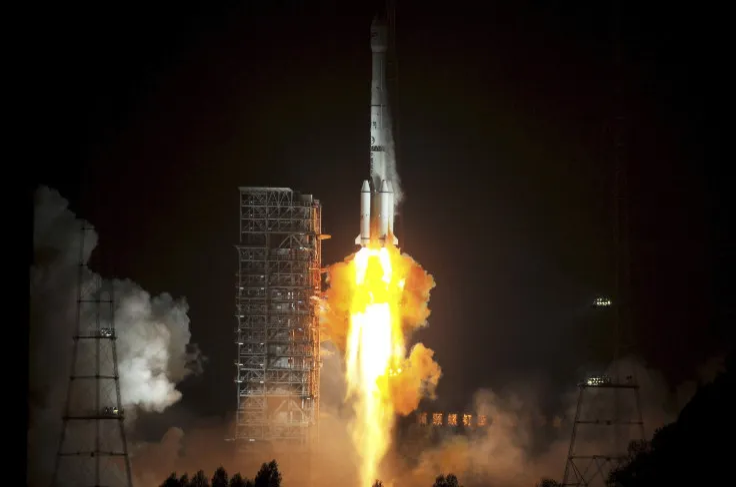
The United States is becoming increasingly concerned with China's involvement in Latin America as the Asian country continues to expand its space network in the region according to a new report by the Washington Post.
Since 2006, China has built ground satellite stations in several South American countries with the purpose of having constant communication with their space satellites. China now has stations in Peru, Venezuela, Bolivia and Argentina and has access to research facilities in Brazil and Chile, according to the media outlet.
But the U.S. is worried that China's growing network of space facilities in Latin America and Antarctica, which have close connections to the Chinese military, will be used for defense capabilities.
According to The Post, many of the satellite stations in Latin America are TT&C facilities, which help track and monitor the health of a satellite and can deliver internet connectivity services. Besides governmental use, the facilities also play an important role in civilian and research uses. The U.S. also has a network of ground facilities that span the globe that used to track satellites. And similar facilities also help power SpaceX's Starlink program, which was crucial in the early days of the Ukraine-Russia war.
China, with over 700 satellites already in orbit and plans for exponential expansion, relies on a global network of terrestrial facilities to track and communicate with its satellites. The Latin American and Antarctic sites fill a strategic geographical gap for China, allowing it to monitor its satellites and potentially surveil other countries' assets passing through the Southern Hemisphere.
However, the Chinese-operated facilities in Latin America have murky connections to the Chinese government and military, according to the report.
China is also aiming to become a world-leading space power by 2045, which can be the reason it has behind the numerous satellite launches.
According to Axios, China's ramped-up space programs will enable the country to boost its telecommunications services and compete with Elon Musk's Starlink program, which is run by SpaceX. However, U.S. officials believe that the new space satellites will be used for surveillance, and the ground stations in Latin America could pose a security risk.
At the 2023 Air, Space and Cyber Conference, Maj. Gen. Gregory J. Gagnon, deputy chief of space operations for intelligence at the U.S. Space Force, went on record saying that Chinese satellites have remote sensing capabilities. According to the USGS, remote sensing technology can monitor and detect physical characteristics in a given area.
"Last year, the PLA and China were successful in putting almost 200 satellites up into orbit. Of those 200 satellites, over half of them are remote sensing satellites, to see and sense not just inside China," said Maj. Gen. Gregory J. Gagnon.
Additionally, the Washington Post investigation underscores China's superior satellite capabilities in the southern hemisphere, as leaked Pentagon documents suggest. China reportedly has the ability to track, jam, or destroy U.S. and allied satellites in the event of a conflict, especially in the Indo-Pacific region. This revelation poses a substantial threat to critical intelligence gathering and emphasizes the urgency for the U.S. to reassess its strategic position in space.
According to the Washington Post, the companies responsible for a majority of the ground satellite stations are state-owned enterprises with connections to the People's Liberation Army (PLA), which is the armed wing of the Chinese Communist Party. The companies have also played a key role in missile development, cyberware and space defense programs for the PLA.
A former technician of one of the facilities interviewed by The Post stated also stated that the stations are used for civilian and military benefit.
Adding to the U.S.'s concerns are the agreements with Latin American governments and the Chinese government as a contract signed with Argentina over the satellite stations states that the local government cannot "interfere or interrupt" China's operations at the facilities.
Rogelio Mayta, a foreign minister of Bolivia, told The Post that he believes China militarizing the satellite technology is unavoidable; however, the outposts still benefit Bolivia.
According to the Washington Post, China's involvement in Latin America grew from the region's lack of economic prosperity. And China included funding for infrastructure projects in Latin America along with the ground satellite facility agreements.
© 2023 Latin Times. All rights reserved. Do not reproduce without permission.







